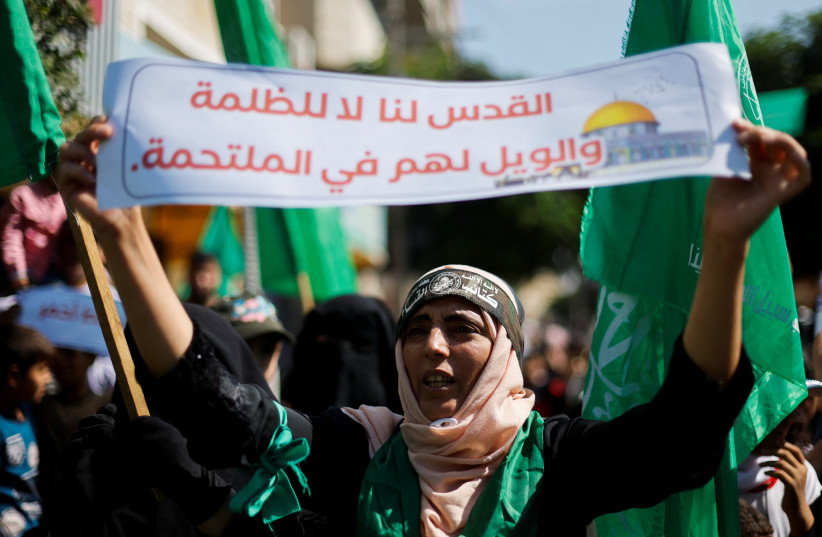In recent months, we have witnessed an escalation and an increase in the scope of attacks carried out by Palestinian terrorist operatives. The more disturbing figure in this matter is the number of Israelis murdered in attacks in the last year, which reached 30. It is important to understand that as far as the Shin Bet (Israel Security Agency) is concerned, there is no change in the scope and number of planned attacks. The Shin Bet foils between 400 and 700 attacks each year before they can come to fruition.
However, as far as we citizens are concerned, the attacks that are carried out are of critical importance, since one attack that succeeds and harms an Israeli citizen is enough to severely damage civilian morale and the public’s sense of security in general.
One option is to analyze the situation from the perspective of the quantity and quality of attacks being carried out. Here we will indeed discover an increase and escalation arising from a number of reasons to which I will refer later. However, it seems that the analysis of the situation from this point of view differs from the general reality. The more correct point of view is to examine the political and security situation as a whole, and here we will also discover the real reasons for the increase in the scope of attacks.
The terrorist attacks directed against Israel originate in several ways: from individual Palestinian terrorists acting spontaneously as a result of personal frustrations and incessant incitement in the Palestinian media; from both the terrorist organizations and the Palestinian Authority itself, which stands at its head; or from organized terrorist organizations, led of course by Hamas, which operates under the direction of operatives in the Gaza Strip.
The groups are trying to recruit, finance and arm operatives with the aim of carrying out terrorist attacks against Israel. They also want to destabilize the PA and bring about the fall of PA President Mahmoud Abbas in order to seize power in its territories.

The PA of the end of 2022 is an entity without governance, very weak and lacking any vision or leadership strategy. It is mainly waiting for the end of Abbas’s rule and the finding of a successor. This waiting is very dangerous as it involves very senior Fatah operatives and extremist Muslim terrorist leaders who wish to fortify and strengthen their position in preparation for the struggle for power on the day after Abbas.
AT THE SAME time, the phenomenon of the weakening of the Palestinian security mechanisms and their becoming almost irrelevant is getting stronger. This vacuum is recognized by the terrorist organizations and other field leaders who intend to build their status by carrying out terrorist attacks against the “Israeli occupation.”
A disturbing phenomenon
The increase in the number of terrorist attacks and their severity is certainly a worrying and disturbing phenomenon. However, it is important to understand that there is no danger of actually harming the security of the state or creating an existential threat to Israel. The Shin Bet has succeeded over the years in thwarting almost 99% of planned attacks. The quality of intelligence and the operational capabilities of the Shin Bet and the IDF guarantee that this will be the case in the future as well.
The real danger in front of us is the troubling fact that the State of Israel has avoided and has been avoiding for years the formulation of any political or security action strategy vis-à-vis the Palestinian Authority. On the one hand, there is currently no real partner on the Palestinian side with whom it is possible to advance any political plan. On the other hand, it must be admitted that the governments of Israel in the last 20 years did not bother to initiate, build or promote any political initiative.
No action plans have been built to promote cooperation with the PA and no clear policy has been established regarding the territories, the separation fence, annexation and the dispute over Jerusalem.
In such a situation, there is no sign of any hope or future for the Palestinians. They are living without a strong government and without governance. In addition, incitement against Israel is increasing from Hamas, Palestinian Islamic Jihad and even the hawks of Fatah. This is where fertile ground develops for ever-increasing terrorist initiatives on the part of individuals and on the part of organized squads operating under the auspices of terrorist organizations.
The immediate solution is to strengthen the activities of the Shin Bet and the IDF in the field, increasing enforcement and thickening the physical security circles at checkpoints and inside cities. However, the longer-term answer requires the construction of a political and security action strategy that refers to all areas of the interface with the PA.
The new government, with all its political sensitivities, must initiate such a plan and lead its implementation in front of the PA, under the auspices of international parties. This must be done to prevent further escalation and a complete collapse of the Palestinian Authority, the results of which would be a return to the disastrous situation that prevailed before the Oslo Accords.
The writer is chairman of the new People’s Council and senior fellow at the Institute for Policy and Strategy, Reichman University.
